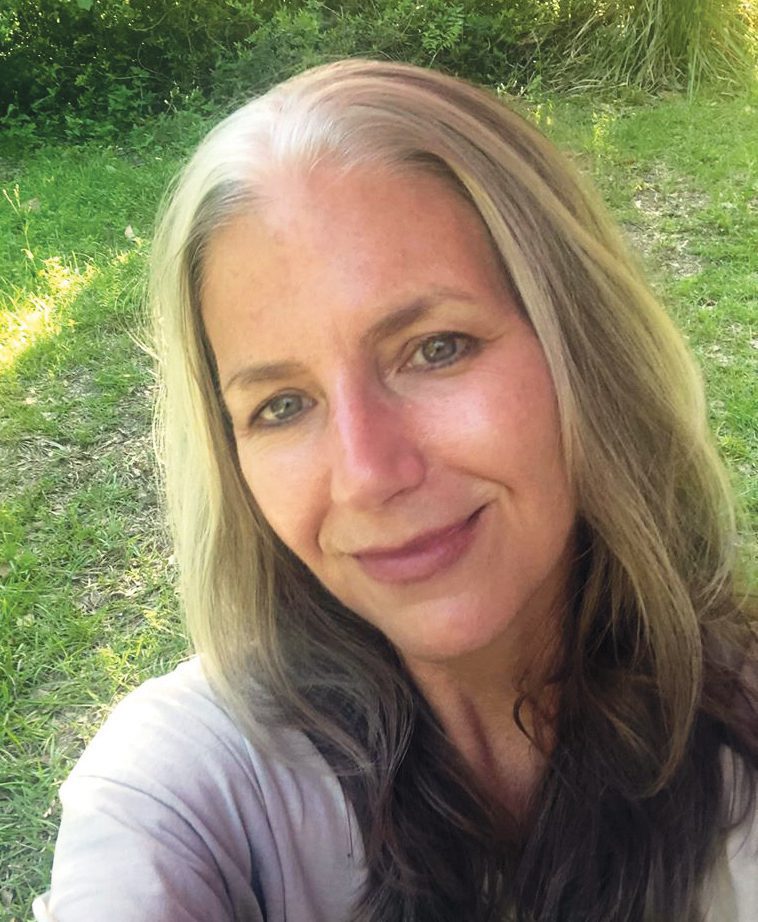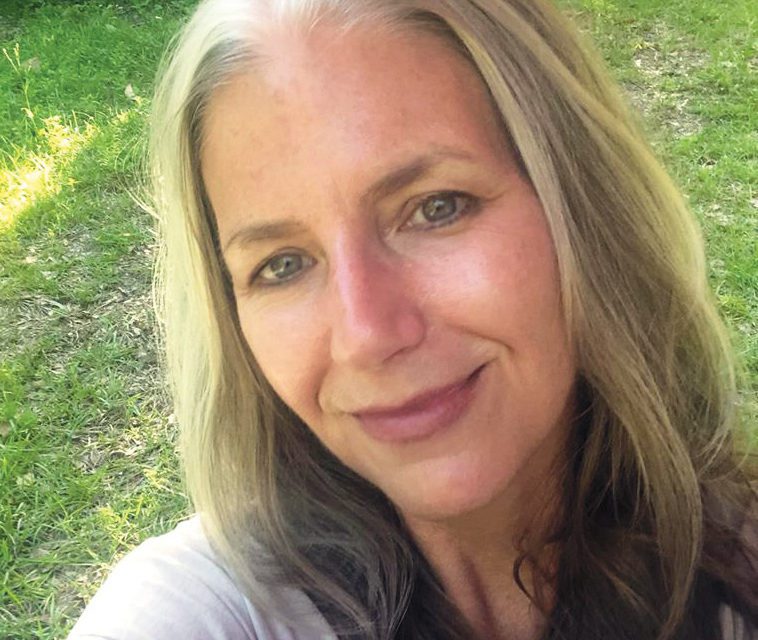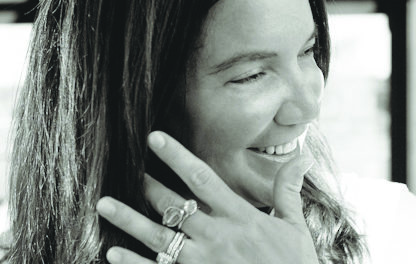
By Margaret Evans, Editor
Typically, I’m not a protest person. I rarely go to marches or demonstrations because I tend to feel awkward and self-conscious, like I’m showing off or angling for brownie points.
Last time I tried to override those feelings, there was a candlelight vigil in Waterfront Park after the Mother Emanuel massacre. I desperately wanted to grieve with my community and support those families, so I sucked it up and went. When I arrived, a white man 20 years my senior – somebody I thought actually liked me – walked up and said, “I’m surprised to see you here.” I was so hurt by his comment I almost slunk away in tears. But I forced myself to stay and was so glad I did. The vigil was healing.
With that mixed memory in mind, I pushed past my anxiety last week and headed over to the peaceful protest on the corner of Ribaut and Boundary. My plan was just to drop off a cooler of ice and water bottles, say “hey, I support y’all,” then head home. But when I got there, everybody was so friendly – so welcoming – I decided it was a great opportunity to “shut up and listen,” an instruction I keep seeing online. I remembered that, hey, I’m a journalist, so I asked the organizers for a quick interview. They were happy to oblige.
The interview did not go as I expected. I wanted to talk about systemic racism and black men who die at the hands of law enforcement, but Jacorey Wright and Tim Garvin wanted to talk about a particular black man who died at the hands of law enforcement – Jacorey’s cousin, Trey Pringle – and had very little interest in discussing racism.
Trey Pringle died over two years ago, when his mother called 911 because her 24-year-old son had suffered a mental break of some kind. The sheriff’s department and fire department arrived on the scene, Trey reportedly hit one of the officers, was tased several times, suffered cardiac arrest, and died three days later at Beaufort Memorial.
This is the official story, anyway. Jacorey Wright isn’t sure it went down like that. He thinks there might have been a cover-up, and he wants answers. He and his friend Garvin say they plan to protest every day until those answers are forthcoming.
Though members of the Beaufort City Police have been very supportive of the demonstration, as of this writing the Sheriff’s department had been less so.
“We had the City of Beaufort police come out yesterday with their grills, and they were cooking and barbecuing, and we appreciate them,” said Tim Garvin. “But we’re looking for the County to come out, too. That’s what we’re looking for. We had one officer from the County, and that was my high school SRO, Officer Allen, and I commend him for that.”
Again, this was several days ago. Things may be different now. I asked Jacorey Wright if he believes his cousin’s death – and the lack of answers – were the result of systemic racism.
“I don’t think it has anything to do with race,” he told me. “This protest is about police violence.”
“But isn’t it about racial injustice, too?” I asked, pointing to a white teenager holding a Black Lives Matter sign.
“It’s about everybody, the whole community,” Wright said. “All life matters. I look at you, and you seem like a good person. I don’t care about your race. Something happens to you right now? I got you. I got you.”
Moved by his graciousness, I tried to steer the conversation back to racism, but Wright was not going there. Was I, a middle-aged white woman, supposed to force the issue? Maybe he was just being polite? Trying to make me feel comfortable?
I am so not comfortable.
And I wonder if that’s a generational thing. I’ve noticed that different generations seem to be responding to our current George Floyd moment … differently.
My Baby Boomer friends – mostly in their 60s and 70s – are right in their zone. Natural revolutionaries, they seem energized by a kind of passionate nostalgia. Coming of age during the Civil Rights Movement must have been a heady and harrowing experience. They were part of something exciting and important – something greater than themselves – and they literally changed the world. My guess is that you never get over something like that. I envy them.
As an early GenXer born in the mid-60s, I have no real memory of the Civil Rights era, but my own youthful nostalgia orbits around its cultural fruits – phenomena like Sesame Street, All In The Family, United Colors of Benetton ads, Stevie Wonder singing “Ebony & Ivory” with Paul McCartney. I grew up in the age that blossomed from the Civil Rights Movement, and it was beautiful. By the time I was a teenager, “racist” had become the worst epithet you could hurl at a person, and everybody I knew was earnestly devoted to rejecting racial prejudice, in thought, word and deed. Should one occasionally harbor such an unseemly emotion, one surely didn’t say so out loud. To my generation, racism wasn’t just shameful, it was seriously uncool.
So now we’ve entered a new era, and the late GenXers and Millennials are steering the conversation. Much of that conversation revolves around concepts like “white privilege,” “white fragility,” and “white supremacy,” which no longer refers to evil men in white hoods – as it did in my youth – but to…everything. American society in toto. They tell us that “racism” isn’t something we do or don’t do – feel or don’t feel – but something we’re born into. Something we can’t deny or denounce, but must acknowledge. Or better yet, confess. Like sin.
The problem is that for many of us – older GenXers like me, anyway – “racist” still feels like the worst thing you can be. We’ve spent our entire (longish) lives trying not to engage in racism, and fancying ourselves fairly successful, so this is a hard gear to shift. On top of that, those who now insist that racism is inextricable from white culture – most of them white, incidentally – are still using the term in that old way, too, as the world’s worst insult. So, by the new calculus, racism is still as terrible as ever, but if you don’t confess your racism publicly, it’s proof that you’re a racist. Damned if you do, damned if you don’t, and there’s no A for effort.
Is it any wonder some people are confused and defensive?
I’ve seen a meme going around Facebook lately that reads, “Nothing’s changed in 50 years.” Every time I see it, I bristle. Because here’s the thing: I totally bought the dream. Not just MLK’s, but everything that came after. I believed in the United Colors of Benetton. Ebony and Ivory. Post-racial America. Obama. I absolutely believed we were making steady progress over all those years and decades. I’m having a hard time loosening my grip on that belief. I don’t even want to. Statistics suggest that the dream was real – America is far less racist today than it was 50 years ago – but nobody wants to talk statistics right now. Or “steady progress.” That’s not the moment we’re in.
We’re in a new moment, and it belongs to a new generation. They will shape the America they want to live in, as each generation must. The young people I met at the protest last week were strong, determined, optimistic, and kind. Those qualities should serve them well as they build the future. I have little to offer by way of advice – I have been wrong about so much, it seems – but I’ll leave them (and you) with some old song lyrics, words that have long sounded trite to my ears, from repetition, but suddenly seem full of new meaning:
We all know that people are the same wherever you go.
There is good and bad in everyone.
We learn to live, when we learn to give each other
What we need to survive, together alive.
– Paul McCartney
Margaret Evans is the editor of Lowcountry Weekly. Read more of her Rants & Raves here.







